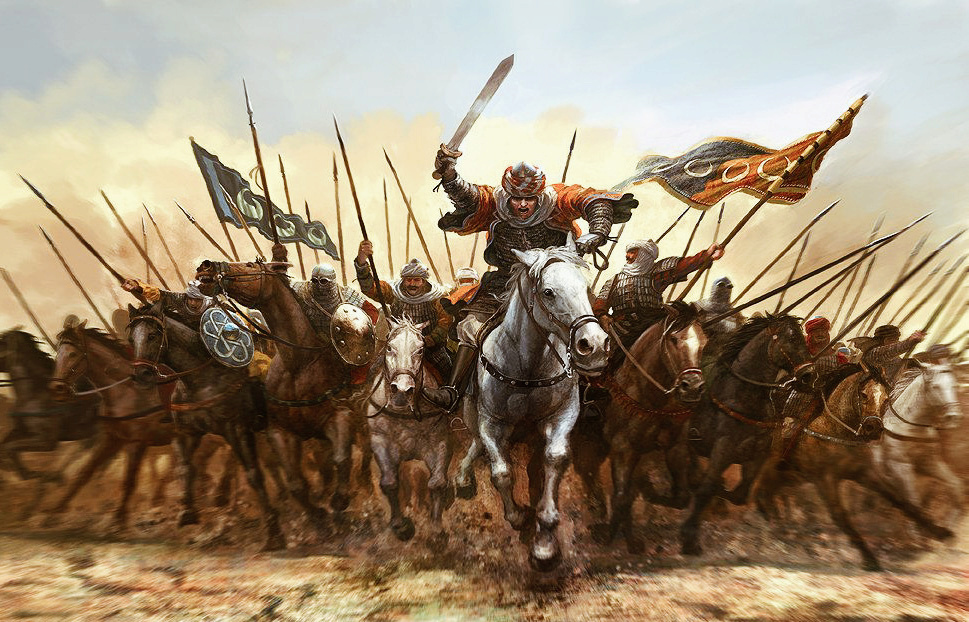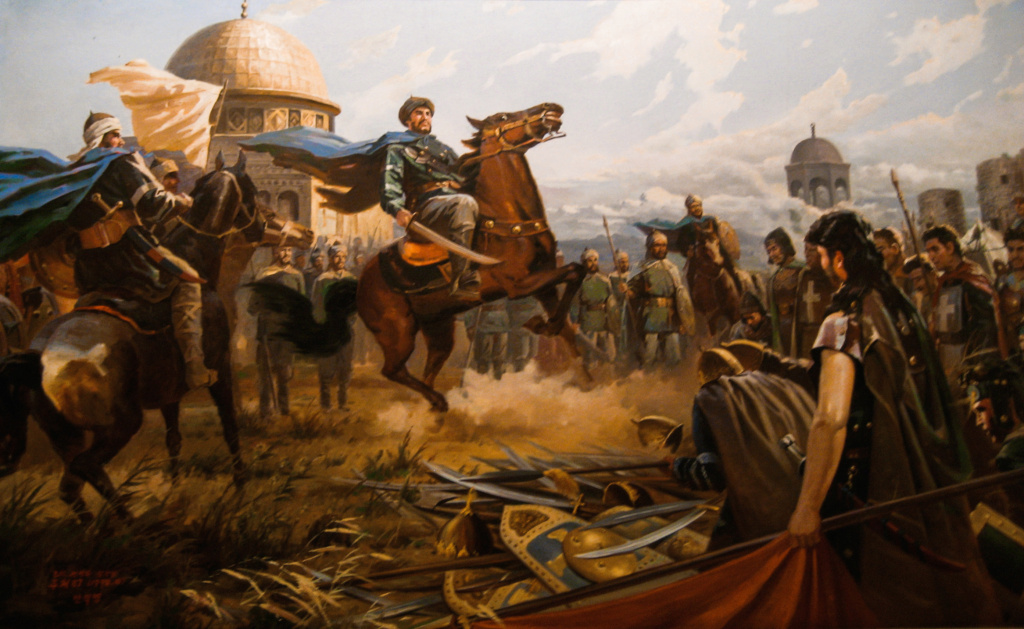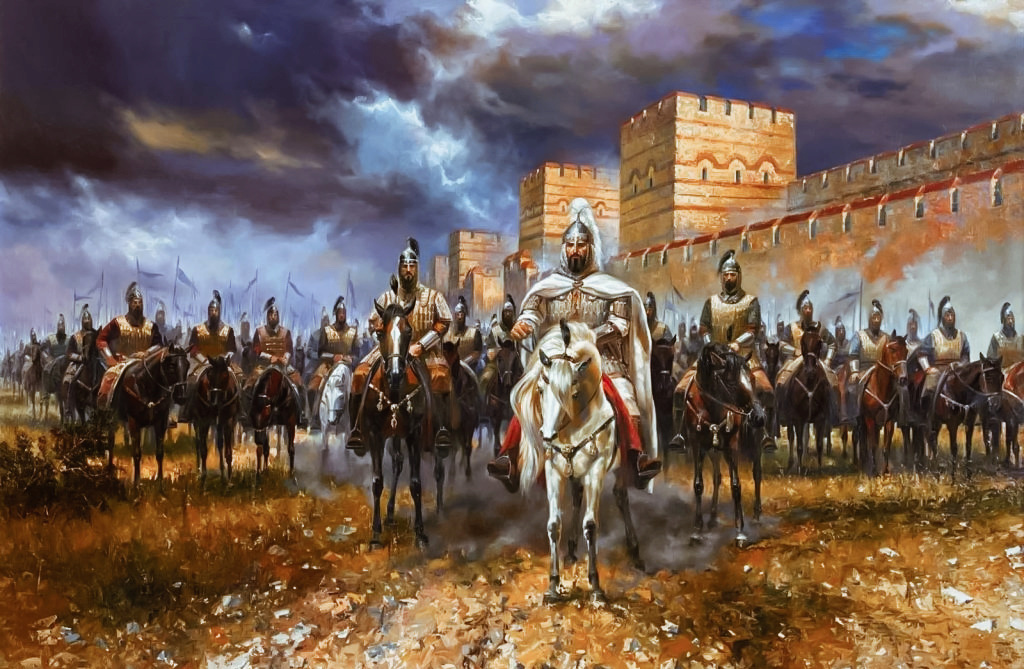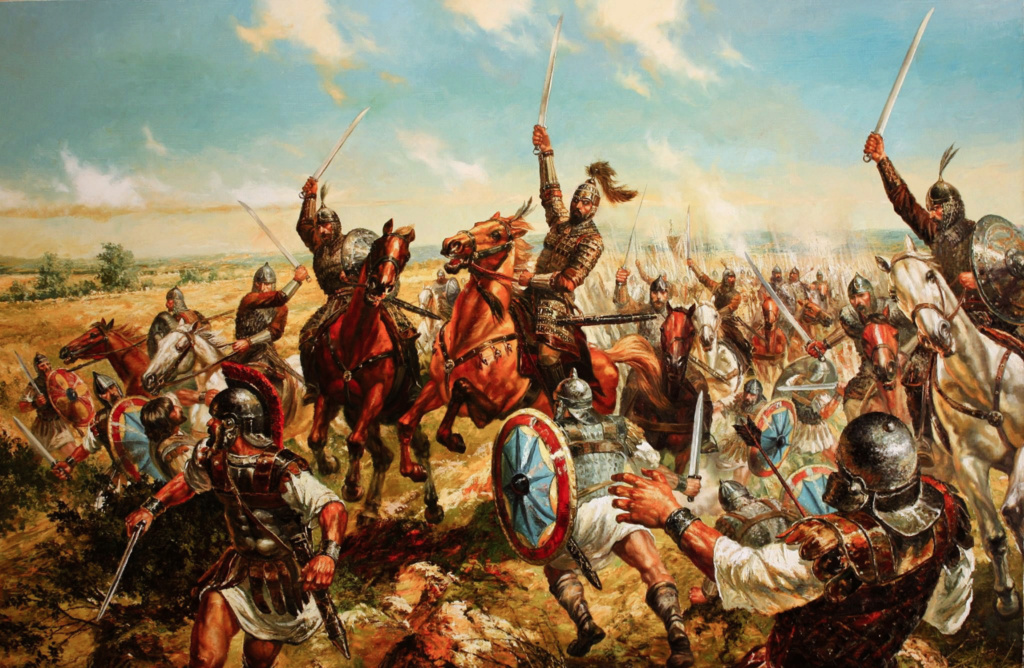? The Arab “invasions” in the narratives of the vanquished: between theological and realistic interpretations... Why did the “invasions” take place in the eyes of the vanquished

The modern perceptions of orientalists regarding the “invasions” were far from the perceptions of the Byzantine and Persian annals writers or the Christians of the Levant in the seventh and eighth centuries, who linked the “Arab invasions” to the data of the unseen, due to the absence of cognitive tools that could not go beyond religious and theological literature at that time.
The “invasions” began in 634 AD. That is, two years after the death of the Prophet, and the day after Abu Bakr's success in suppressing apostasy movements in the Arabian Peninsula.
At that time, the two states, Byzantium and Persia-Sasanian, had just emerged from a long and devastating war between them... Hence, they were not ready to face any danger preparing to surprise them from the desert.
A comprehensive weakness is the one with which historians assess the state of the two empires on the eve of the “invasions”. The ruling Sassanian family in the Persian case suffered from several internal conflicts, while the religious-ideological foundation in Byzantium was cracked as a result of a long series of ecclesiastical schisms.

Almost unanimously, the conquered peoples considered the “Arab invasions” a punishment from God for sins, some of which were due to internal disputes related to faith and conflicts between the different churches, and others to “misfortunes” they committed in their daily lives.
The annals writers and priests, at that time, had expected the occurrence of the “invasions” that the books of the ancients talked about…
In more than one ancient source, news came about swords of meteors that appeared in the skies of Syria and Mesopotamia, years or months before the beginning of the “invasions” and the fall of the Roman and Persian kingdoms.
In an attempt to explain the background on which the “invasions” appeared, the Armenian historian Sebeos, who lived and wrote in the seventh century, says that a man appeared among the Arabs and reconsidered the lineage link that linked them to Ismail (inspired by the Jews) and decided to push his people to recover the promised land in Palestine.

Sebeus adds: “Once again I must speak of the evil that has befallen us in our time, And how the garment of the old faith was torn and how the dry heat blew its winds on us and burned the beautiful leafy trees in our tender gardens. this is the truth; Because we have sinned against the Lord and angered the saint of Israel.”
The Georgian Annals, which are believed to have been drafted in the twelfth century as a result of a collection of a number of older documents, say that “no one is able to record the disasters that Christians experienced because of the Saracens who were previously called “Kagret Aknak.” The Torah stated that the tongues of the Kagart would lick the blood of the innocent.
Here we clearly notice this link between what happened and what they believed that the Torah had alerted him to.
And John of “Funk or Bank” (located on the bank of the Tigris River), who lived in the second half of the seventh century, called for not considering the appearance of the sons of Hagar as a normal matter, but rather “taking it as the result of a divine act; So when these people came, by God's command, and took possession of what belonged to the two kingdoms (Byzantine and Persian)… God placed victory in their hands as if the words they meant were carried out to the letter: A man chasing an thousand and two defeating ten thousand (Deuteronomy 32, verse 30) . Otherwise, how could naked people riding (their horses) without armor or shield win, without divine help? God called them from the ends of the earth in order to destroy through them a “wicked kingdom” (Book of Amos, chapter 9, verse 8) and to humiliate the proud spirit of the Persians.
This feeling of guilt reaches levels that prompt Christian historians to place accusations of Christian sins on the tongues of Muslim leaders.

Michael the Syrian (Patriarch of the Syriac Orthodox Church in the Middle Ages), for example, is attributed to Muawiyah bin Abi Sufyan as saying during his leadership of the campaign that followed his seizure of Caesarea of Palestine: “We are going up to a country full of gold and wealth of every kind. God has placed this country in our hands because of the sins of its inhabitants.”
After these old interpretations, let us now look at the interpretations offered by modern orientalists, after the West returned to interest in the “Arab invasions”, to compare two approaches, ancient and modern, in understanding history from the point of view of others.
William Muir argues that the large population increase in the Arabian Peninsula made overcrowding a problem that could not be solved except through “invasions” and rushing out of poor areas like “swarms of locusts that blackened the face of the world.”
That is what Leone Caetani rejects, who argues that the numbers of Arabs and Muslims were not large, without denying the existence of an economic problem as a result of the drought that contributed to pushing the Arabs to emigrate and then clashing with the Byzantines and the Persians.

As for Henri Lammens, he attributes the reason, on the one hand, to the nature of the Arabs inclined to fight and conquer, and to the emergence of a superior military organizational capacity over their enemies as a result of the soldiers’ complete submission to orders, derived from tribal obedience to elders, and to excessive violence in dealing with the enemy, on the other hand. .
This is what Alexander Vasiliev, the author of “History of the Byzantine Empire,” asserts that the Bedouins who made up the overwhelming majority of the soldiers of the “invasions” had nothing but plunder and plunder, and their knowledge of Islam was only an auditory knowledge, stressing the absence of the religious factor in the “invasions.”
Bernard Lewis draws a similar conclusion by saying that the “Arab invasions” are an expansion of the Arab nation and not of Islam, due to demographic overcrowding… And it helped in the success of the conquests that the Persian and Byzantine dams, which were able to confront the Arab invasions and migrations, were weak.
According to Gibbon, it is precisely this weakness to which the Arabs owe their victories; Seeing that he… If Muhammad had been born in the days of Caesar Trajan, Constantine, or King Charlemagne, “these would have been able to repel the attacks of the naked Saracens, and the religious fervor would have been lost in the sands of the desert.”
Simply put, they believe that saying the primacy of the Islamic religious motive is not sufficient to explain the victories, in contrast to saying that the other side was weak.

The modern perceptions of orientalists about the “invasions”, then, were far from the perceptions of the Byzantine and Persian annals writers or the Christians of the Levant in the seventh and eighth centuries, who linked the “Arab invasions” to the data of the unseen, due to the absence of cognitive tools that could not go beyond the religious and theological literature at that time.
Source: websites

